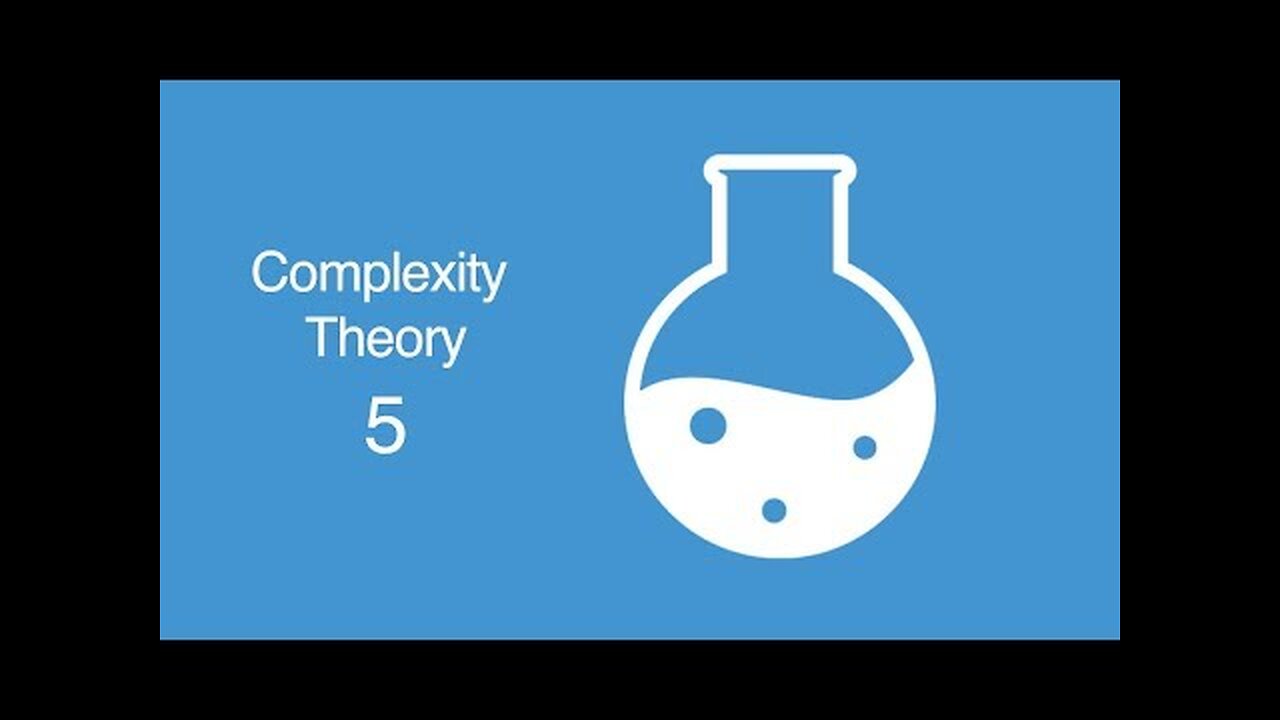Premium Only Content

Complexity Science Overview
A brief overview of complexity science.
Complexity science is a new approach or method to science that has arisen over the past few decades to present an alternative paradigm to our standard method of scientific enquiry. To give it context lets start by talking a bit about our traditional approach to scientific research.
We can loosely define science as a type of enquiry into the world around us, as opposed to other areas such as art or religion that are based upon aesthetics or revelation, the scientific method of enquiry claims to be based upon empirical data, otherwise known as facts.
The beginning of the modern era, proximally 500 hundred years ago, saw the development of a systematic and coherent framework for conducting this scientific process. This framework became clearly formulated with the work of Sir Isaac Newton, and thus Newtonian physics became an example or paradigm of how modern science should be conducted.
The Newtonian paradigm is a whole way of seeing the world that describes phenomena as the product of linear cause-and-effect interactions between isolated objects that are determined by mathematical laws, this vision of the things results in a very mechanical world sometimes called the clock world universe.
This new paradigm in turn gave rise to a new method of inquiry called reductionism. Reductionism is the process of breaking down complex phenomena into simple components that can be modeled using linear equations. by then reassembling these individual components we can understand the whole system as simply the sum of its individual parts.
Having been phenomenally successful within physics this framework for modern science has gone on over the century to be applied to almost all areas of enquiry from biology to engineering and business management, placing it at the hear of our modern understanding of the world.
It is only during the 20th century that this approach to science began to be called into question as the revolutions of quantum physics and relativity showed some of its most basic assumptions about time, space and causality to be flawed. Whist later in the century chaos theory began to open up a new world of non-linear systems.
Outside of science, the world has also become very different from the one Newton lived in as globalization, information technology, and sustainability present us with the new challenges of understanding, designing, and managing systems that are highly interconnected, interdependent, and non-linear, that we can now call complex systems.
This is where complexity science comes in to provide us with an alternative scientific method better suited to researching these complex systems, supported by a paradigm that sees the world as a set of interconnected elements whose interaction gives rise to the patterns and phenomena that we observe in the world around us. As opposed to traditional science tries to eliminate complexity by studying the individual component of a system within an isolated environment.
Complexity science places a greater enforces on open systems which is understanding systems within the complex of relations that give it context.
Whereas traditional reductionist science primarily uses linear mathematical models and equations as its theoretical foundation, complexity science uses the concepts of complexity theory, such as self-organization, network theory, adaptive, and evolution.
This new theoretical framework is combined with new methods such as agent-based modeling. As opposed to describing the phenomena we observe in terms of the laws of nature encoded in equations, agent-based modeling takes a more bottom-up approach and describes them as the emergent phenomena of local-level interaction of agents governed by simple rules.
Complexity science studies the complex systems in our world that have previously fallen between the gaps of modern science, such as financial networks, cities, ecosystems and social networks, studying these large complex systems typically requires significant amounts of data.
Thus what the microscope, telescope and laboratory were for modern science, computation and data are to complexity science, which relies heavily on computer simulations and analysis of the mass of rich and diverse data that information technology, has provided us with...
-
 1:24:08
1:24:08
MTNTOUGH Podcast w/ Dustin Diefenderfer
23 hours agoFlorent Groberg: Medal of Honor Recipient | MTNPOD #146
35.7K -
 8:42
8:42
Freedom Frontline
17 hours agoAOC LOSES IT After Trump Supporter’s Question Corners Her in Public
11.8K23 -
 1:04:54
1:04:54
A Cigar Hustlers Podcast Every Day
1 day agoHustlers Podcast Every Week Day Episode 429 "Two Icons"
12.7K -
 2:08:10
2:08:10
BEK TV
1 day agoTrent Loos in the Morning - 12/16/2025
12.4K -
 47:05
47:05
Athlete & Artist Show
10 days ago $0.67 earnedHIGH STAKES w/ Former Team Canada Gold Medalist
14.7K -
 2:53
2:53
GreenMan Studio
15 hours agoGREENMANS STOCKING STUFFERS 2 – GRIMMS CAMPING SUPPLIES
14.3K4 -
![Special guest: Sam Anthony, CEO & Founder, [your] News](https://1a-1791.com/video/fwe2/16/s8/1/q/B/l/I/qBlIz.0kob-small-Special-guest-Sam-Anthony-C.jpg) 42:06
42:06
Rpurham
21 hours agoSpecial guest: Sam Anthony, CEO & Founder, [your] News
14.4K -
 15:23
15:23
Standpoint with Gabe Groisman
19 hours agoDual Citizenship Coming to an End? US Senator Bernie Moreno
100K26 -
 1:22:19
1:22:19
FreshandFit
13 hours agoGirls Try To Get 60 Year Old Granny To Do OF
372K142 -
 3:05:53
3:05:53
Decoy
13 hours agoNobody is talking about this..
102K28